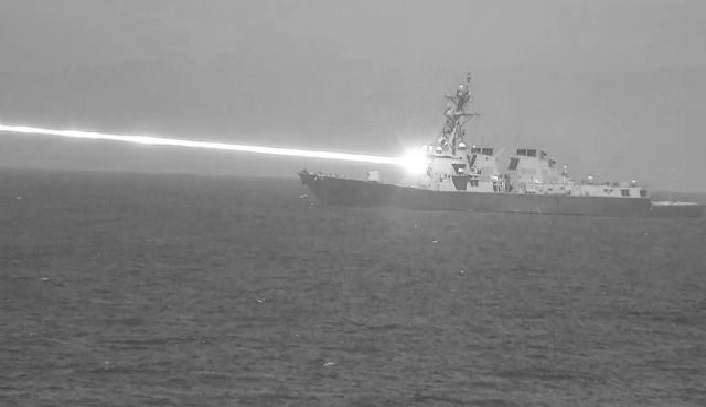Is Iran's Intelligence Chief a Double Agent for Israel? Former President Ahmadinejad’s Explosive Claims Stir Controversy

In a bold and unexpected revelation, former Iranian President Mahmoud Ahmadinejad has claimed that the head of Iran's intelligence services has been working as a double agent for Israel's Mossad. The allegations, which were made during an interview with CNN Türk, have sent shockwaves across the political and intelligence community, casting doubt on the integrity of Iran’s national security apparatus.
Ahmadinejad, known for his hardline stance against Israel during his presidency, stated that Iran’s intelligence services have been deeply infiltrated by Israeli spies. According to him, key officials, including those responsible for countering Israeli espionage, were secretly recruited by Mossad. This is not an isolated case, but part of a larger, systematic infiltration, Ahmadinejad suggested.
He claimed that as many as 20 Iranian operatives had been turned into double agents. These individuals, instead of thwarting Israeli operations, were reportedly leaking highly sensitive information back to Tel Aviv. The most disturbing part of this revelation is the allegation that these leaks specifically targeted Iran’s nuclear program, a subject of intense scrutiny by the international community.
The Alleged Compromise of Iran's Intelligence
The group tasked with monitoring Israeli intelligence activities, once a powerful arm of Iran’s security network, is now being painted as a compromised unit. The person allegedly heading this compromised division, according to Ahmadinejad, was clandestinely recruited by Mossad. This raises profound concerns, as such high-level infiltration would mean Israel has been privy to some of Iran’s most guarded secrets.
The allegations, while not confirmed by Iranian authorities, add to a history of tension between Israel and Iran, particularly over Iran’s nuclear ambitions. Israel has long been vocal about its opposition to Iran’s nuclear program, claiming it is a cover for developing nuclear weapons—a claim that Iran vehemently denies, insisting its program is purely for peaceful purposes. However, Ahmadinejad’s accusations revive an uncomfortable reality for Tehran: that their security might not be as impenetrable as they’ve long claimed.
Mossad’s Bold Espionage Operations in Iran
These allegations by Ahmadinejad are not the first time Mossad has been linked to covert operations within Iran. In 2018, then-Israeli Prime Minister Benjamin Netanyahu revealed that Mossad had successfully conducted a daring raid in Tehran, extracting more than 100,000 files related to Iran’s nuclear program. The operation, lasting several hours, involved breaking into a secret warehouse, cracking open safes, and escaping with sensitive documents.
The stolen files were later presented in a dramatic fashion by Netanyahu, who used them as evidence that Iran had been covertly developing nuclear weapons, despite its commitments under the 2015 nuclear agreement (officially known as the Joint Comprehensive Plan of Action, or JCPOA). This operation significantly influenced the Trump administration’s decision to withdraw from the deal in 2018, as it reinforced U.S. concerns about Iran’s nuclear intentions.
Ahmadinejad’s recent claims, if proven true, would suggest that Mossad’s espionage network within Iran goes far deeper than previously believed, possibly extending into the highest levels of Iran’s intelligence community. The extent of the alleged infiltration could mean that Israel has been continuously receiving real-time intelligence from within Iran for years.
Impact on Iran’s Security Landscape
The consequences of Ahmadinejad’s revelations could be far-reaching. If true, they would severely damage the credibility of Iran’s intelligence services, both internally and on the international stage. It could also lead to internal purges within Iran’s security apparatus, as the government tries to root out potential spies and restore confidence in its intelligence capabilities.
For Ahmadinejad, these revelations may also serve a political purpose. Since leaving office in 2013, he has become a vocal critic of Iran’s leadership, positioning himself as an outsider within the establishment. By bringing these allegations to light, Ahmadinejad could be attempting to undermine his political rivals and draw attention to his calls for greater transparency and reform within the country’s institutions.
On the global stage, Ahmadinejad's claims may fuel the ongoing tension between Israel and Iran, particularly concerning Iran's nuclear program. If Mossad has indeed compromised Iran’s intelligence network to this extent, it could alter the balance of power in the region, making it even harder for Tehran to keep its military and nuclear strategies secret.
The Broader Implications of Israeli-Iranian Espionage
The larger context of these allegations speaks to the decades-long shadow war between Israel and Iran. Both nations have engaged in covert operations against each other for years, with Mossad carrying out targeted assassinations of Iranian nuclear scientists, while Iran is accused of supporting proxy groups that target Israel. This ongoing struggle for intelligence superiority is central to the geopolitics of the Middle East.
Ahmadinejad’s claims, regardless of their veracity, spotlight the vulnerability of even the most secretive and powerful intelligence organizations. In an age of cyber warfare, leaks, and covert operations, no government is immune to espionage.
For Iran, whether or not these specific claims are confirmed, the very discussion of Mossad infiltration damages the perception of the regime's control over its own security. This might also embolden critics of the current administration, both domestically and abroad, to push for reforms or more stringent security measures.
Ahmadinejad’s allegations about a high-ranking double agent within Iran’s intelligence services are both startling and significant. They raise serious questions about the integrity of Iran’s intelligence operations and suggest that Israel’s Mossad has potentially penetrated the upper echelons of Iranian security. Whether these claims are fully substantiated or dismissed as political maneuvering, they shed light on the fragile nature of intelligence in a world where infiltration and espionage are powerful tools in global politics.
The coming weeks will be crucial for Tehran, as it grapples with these explosive accusations and their implications on both national security and its ongoing tensions with Israel.



